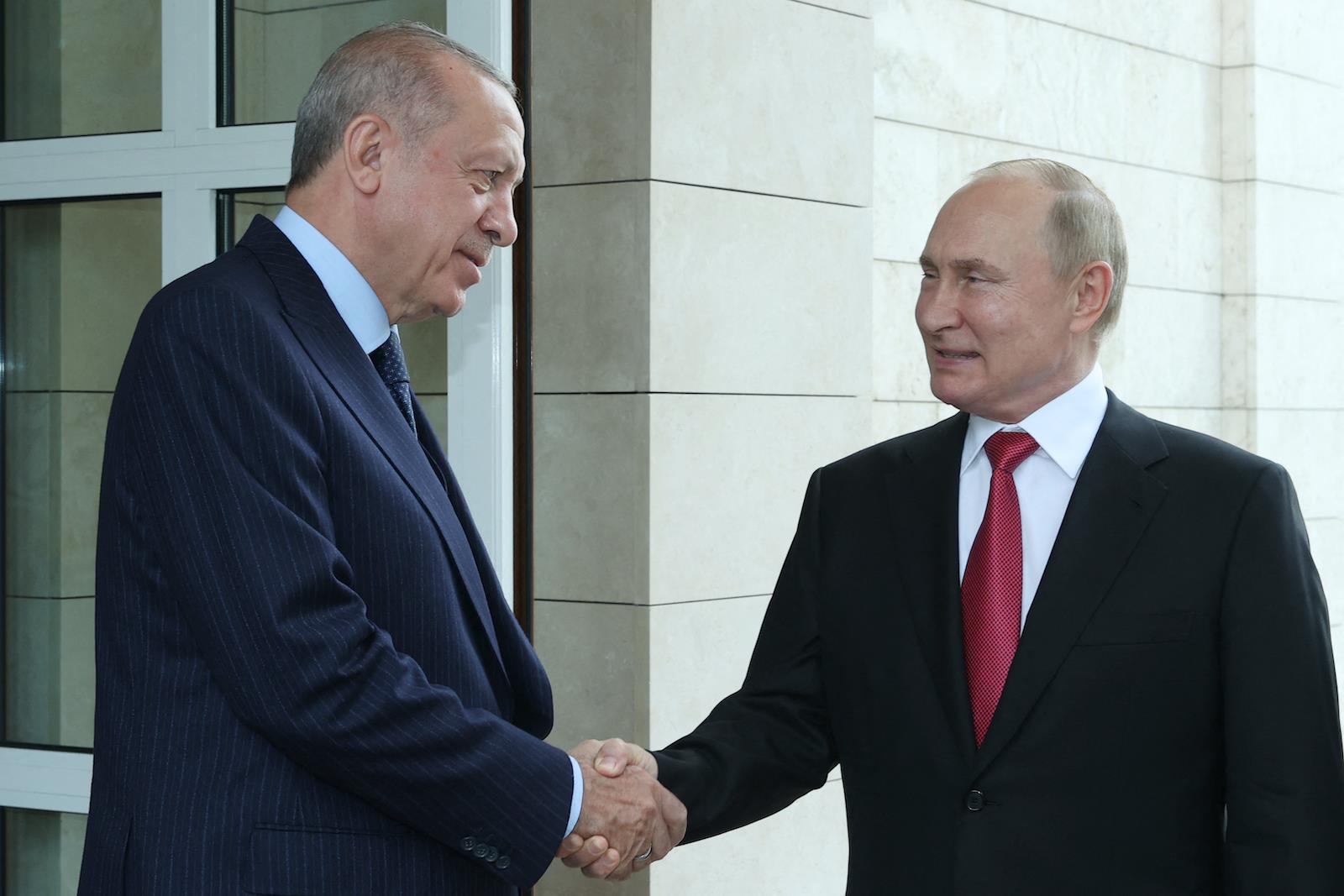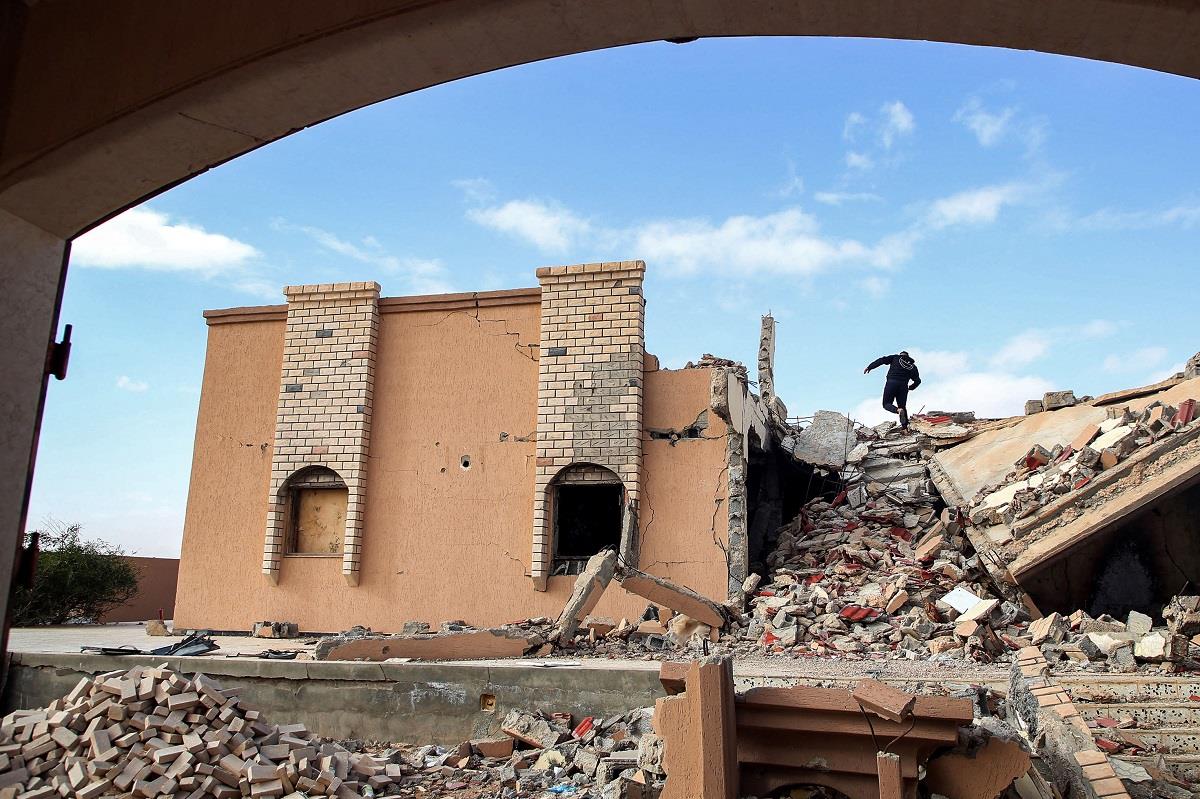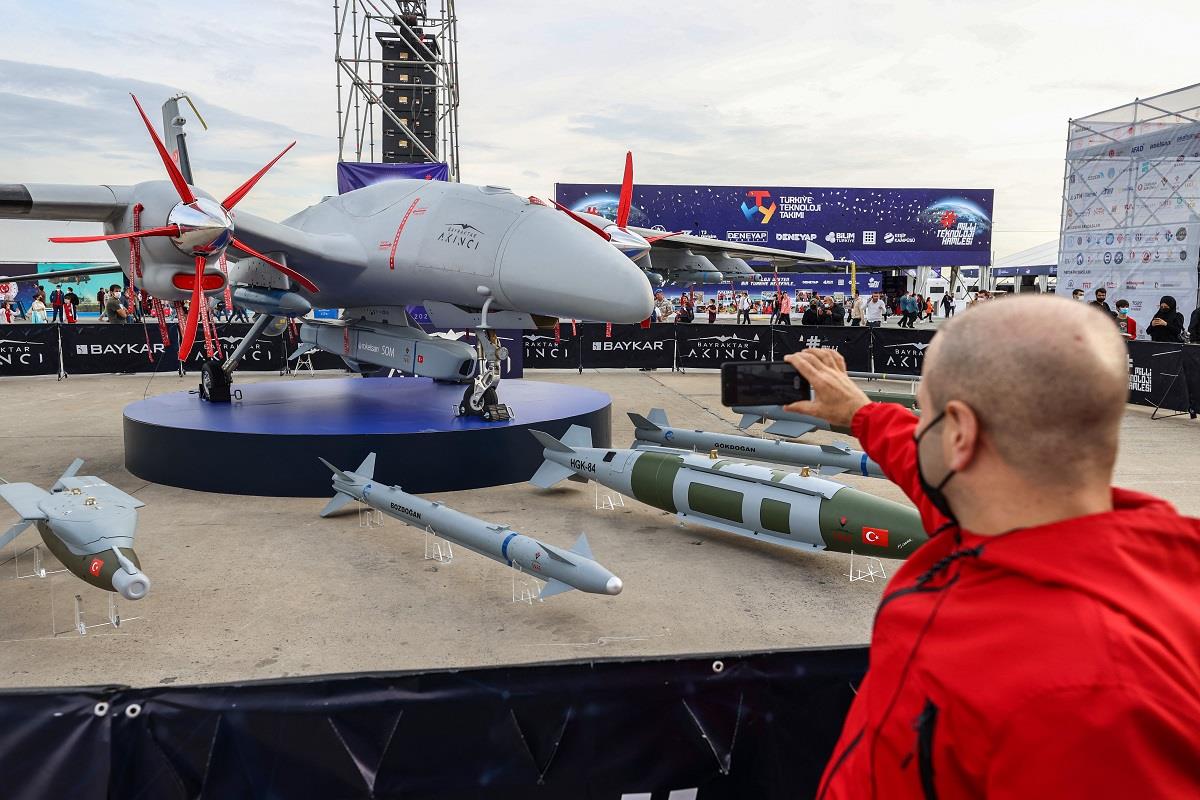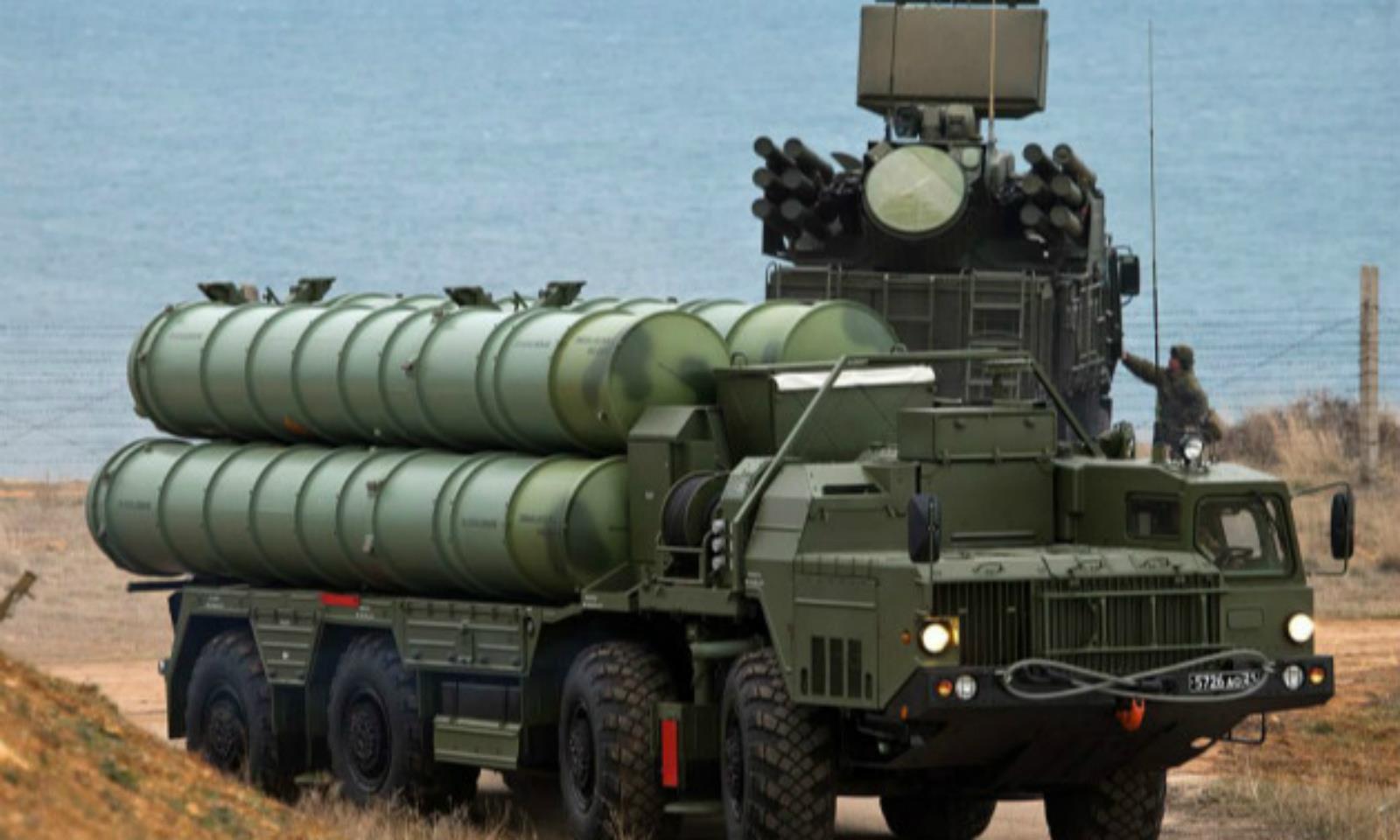(MENAFN- Asia Times) With a lengthy list of conflicts, gas deals, diplomatic crises and weapons contracts on the agenda, the Russian and Turkish presidents met in the Black Sea resort of Sochi on September 28.
Their discussion – details of which have been emerging slowly – ran through topics from Libya to Syria, and from Natural gas to a potential Turkish Moon shot.
Given the wide range of issues, it was also surprising that they took just two hours forty-five minutes to finish.
Indeed, the last time President Vladimir Putin and President Recep Tayyip Erdogan met face-to-face, in March 2020, they took six hours to work through much the same agenda.
“This suggests it wasn't a meeting to make major decisions,” John Hardie, Russia expert from the Foundation for Defense of Democracies, told Asia Times.“It was more about regulating the relationship.”
Indeed, few firm decisions have emerged from the meeting, which saw no concluding joint press conference or ringing declaration.

Russian President Vladimir Putin (R) shaking hands with Turkish President Recep Tayyip Erdogan (L) after their meeting at the Russian Official Residence of Presidency in Sochi. Photo: AFP via Turkish Presidential Service / Mustafa Kamachi
Instead, all Erdogan told Turkish reporters on the plane home was that Russia would provide future support for Turkey's defense industries and for its nascent space program – which aims for an un-manned Moon landing by 2023.
“President Erdogan's statement seemed more like a wish list for the future, rather than a concrete list of agreements,” Ozgur Unluhisarcikli, the German Marshal Fund's Ankara chief, told Asia Times.”
Such a firm list may, however, be urgently needed, particularly over Syria, where Turkey and Russia are on opposite sides in a bloody civil conflict.
There, recent days have seen an escalation in the Russian and pro-Assad Syrian Arab Army (SAA) bombardment of Turkish-backed rebels in Idlib – the last opposition stronghold.
Indeed, after a short lull during the Putin-Erdogan summit, October 1 saw air and artillery strikes resume to the south of the Idlib enclave, with rebel commanders expressing concern that this might be in preparation for a new ground offensive.
Meanwhile, on the economic front, Turkey and Russia are also increasingly at odds over energy.
A brace of key contracts supplying Russian natural gas to Turkey is set to expire at the end of the year, potentially leaving Turkey in the cold for what is widely expected to be an unusually harsh winter.
“There are some very real and very urgent issues between Turkey and Russia,” Unluhisarcikli says.“Cooperation may still be there, but so are some long-term problems.”
Eyeball to eyeball While Syria remains the most“live” confrontation between the two nations, Libya also remains a bone of contention.
There, Turkey has troops on the ground who provided vital support for the Tripoli-based Government of National Accord in its battles with the Russian-backed General Khalifa Haftar, during recent fighting.

A youth climbs the rubble of a destroyed building in the Libyan city of Tawergha. Russia and Turkey are on opposite sides in the conflict. Photo: AFP / Mahmud Turkia
Both Ankara and Moscow now formally back Libya's UN-led peace process, but while both have committed to a withdrawal of foreign troops, Turkish boots remain on the ground, while Russia – which has always denied a presence – remains via the mercenary Wagner Group.
Since Putin and Erdogan last met face-to-face, close Turkish ally Azerbaijan has also ejected Armenia from the disputed Nagorno-Karabakh enclave in the South Caucasus.
Russian and Turkish troops now jointly monitor the November 2020 ceasefire agreement that ended the fighting there.
Yet,“In the Caucasus, Russia really doesn't like Turkey being in its backyard,” says Hardie.
The Nagorno-Karabakh conflict also saw Turkish military drones play a decisive role, with some of these now also sold to Ukraine – much to the displeasure of Russia.
Moscow backs pro-Russian Eastern Ukrainian separatists and annexed Ukraine's Crimea in 2014.
Just days before the Sochi summit, too, Erdogan effectively condemned that annexation at the UN General Assembly in New York.
“We attach importance to the protection of the territorial integrity and sovereignty of Ukraine, including Crimea, the annexation of which we do not recognize,” Erdogan said.

An attack drone on show at the Aviation, Space and Technology Festival in Istanbul. Russia is unhappy that Turkey is selling drones to Ukraine. Photo: AFP / Muhammed Enes Yildirim / Anadolu Agency
In addition, the same day as the Sochi summit, Ukraine and Turkey signed a memorandum of understanding on establishing joint training and maintenance facilities for Turkish drones, along with plans for future joint production.
Yet, for all the disputes, in recent years, Russia and Turkey have always managed to find a way of managing their competing interests.
Finding a way “Negotiations are sometimes difficult but with a positive final result,” Putin said after the Sochi summit.“Our government bodies have learned to find compromises that are beneficial to both sides.”
Part of the reason for that is the relationship between the two leaders themselves.
“This has been an important factor in keeping things from going off the rails,” Hardie says.“That's also why it was so important that they met face-to-face, as so much depends on this leader-to-leader negotiating.”
Also helping keep the relationship on the rails is a considerable economic interest.
According to Russian state news agency Izvestia, trade between the two countries increased 55% in the year before the summit, with Turkish investment in Russia standing at $1.5 billion and Russian investment in Turkey at $6.5 billion.
On energy, Russia is a major source for Turkey's natural gas, piped in under the Black Sea, although Turkey has also sought in recent years to reduce this dependency by developing its own gas resources and diversifying its energy mix.
As part of that, Russia's Rosatom is also currently building Turkey's first nuclear power plant, with Erdogan suggesting after the Sochi meeting that in future, it might build two more.
Russia is also a major customer for the Turkish tourism sector, with some 2.3 million Russians visiting Turkey in 2020, according to official Turkish statistics.

The US is unhappy that Turkey bought S-400 missiles from Russia. Photo: Visual China.
The cooperation in defense industries that Erdogan talked of after Sochi might also build on the controversial sale of Russian S-400 anti-aircraft missiles to Turkey in 2017.
With Turkey a NATO member, the US and other members of the Atlantic alliance objected to this sale, ejecting Turkey from the F-35 fighter jet program after claiming the S-400 deal compromised the aircraft's security.
The US also imposed sanctions on several leading Turkish defense officials over the deal.
More defense cooperation would not indicate any backing down by Turkey on this dispute with its NATO allies. Indeed, Erdogan has recently suggested purchasing a second batch of S-400s.
“This triangle between Russia, the US and Turkey is a tough one to negotiate but Russian-Turkish relations have weathered many crises and managed to hold it together,” Hardie says.
Now, as Russian bombs and pro-Assad Syrian artillery shells start to land in the Idlib enclave with increasing ferocity, a major test of that ability to manage may be fast approaching.
MENAFN01102021000159011032ID1102900252